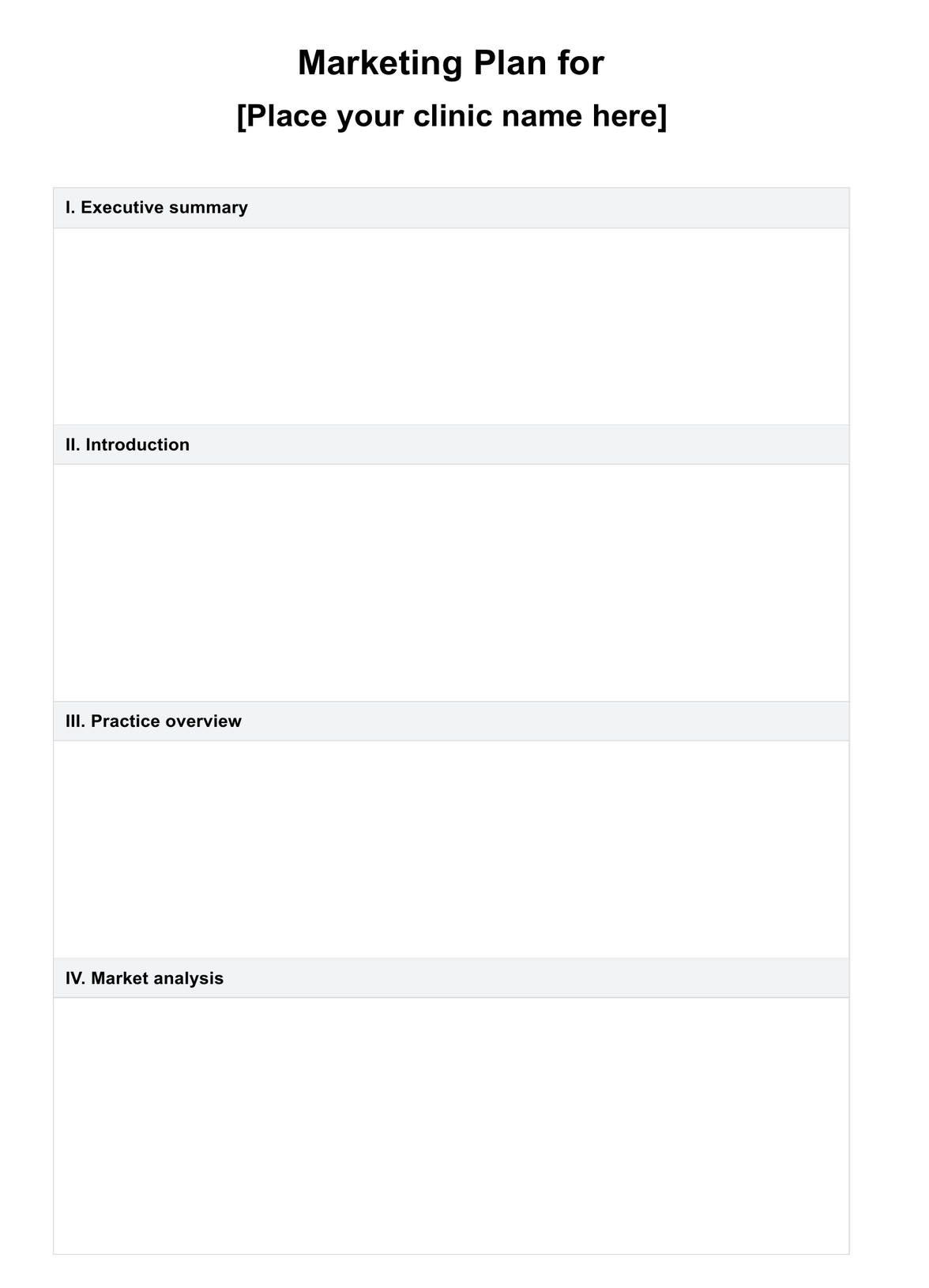Marketing a private practice involves defining your target market, leveraging online and offline channels such as social media, networking events, and referral partnerships, and consistently promoting your services to attract clients.

Marketing Plan for Private Practice
Carepatron's free PDF download can help you develop a comprehensive marketing plan for your private practice. Learn from real-life examples and boost your business today!
Use Template
Marketing Plan for Private Practice Template
Commonly asked questions
To include a marketing plan in your business plan, outline your target market, competitive analysis, marketing strategies, tactics, budget, and metrics for measuring success.
Lay out a marketing plan by defining your objectives, identifying your target market, outlining strategies and tactics, setting a budget, establishing timelines, and assigning responsibilities.
EHR and practice management software
Get started for free
*No credit card required
Free
$0/usd
Unlimited clients
Telehealth
1GB of storage
Client portal text
Automated billing and online payments











